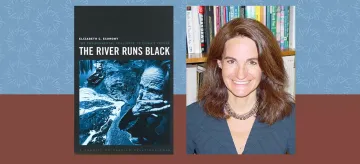Search 140 results
- Remove filter: Climate & Energy
- Remove filter: Technology
Filter by
Events
Series
Students will discuss and debate whether the internet should respect national borders or the concept of a “free and open” internet (i.e.: Should countries be allowed to regulate?).


In this book, CFR Senior Fellow Elizabeth C. Economy uses historical research, case studies, and interviews with officials, scholars, and activists in China to provide insightful analysis of the economic and political roots of China’s environmental challenge as well as the evolution of the leadership’s response. Teaching notes by the author.
- Students will consider the impact and challenges of social media and cryptocurrency.
- Students will analyze the concepts of cyber sovereignty, online privacy, data storage, and use of cyberweapons.
- Students will discuss and debate whether the internet should respect national borders or the concept of a “free and open” internet (I.E: Should countries be allowed to regulate?).
- Students will understand the development of the internet including how its worldwide, decentralized structure has led to issues around regulation and sovereignty.
- Students will identify how much the internet is part of daily life.

Building a Resilient Tomorrow draws on international and national examples, some revealed for the first time, to provide an interdisciplinary narrative covering a range of climate resilience solutions.

In The Hacked World Order, Adam Segal shows how governments use the web to wage war, spy on, coerce, and damage each other. While scholars, activists, and technologists initially heralded the Internet as a space outside of state control, governments have been quick to step into this new domain—both to control activity that happens within it and to adopt it as a new tool of state power.

In this book, CFR Adjunct Senior Fellow Rachel Bronson presents the first full history of the U.S. relationship with Saudi Arabia, revealing why the alliance was formed and what we stand to lose if it collapses. Teaching notes by the author.

Solar energy, the world’s cheapest and fastest-growing power source, could one day supply most of the world’s energy needs. In Taming the Sun, however, Varun Sivaram warns that solar’s current surge is on track to stall, dimming prospects for averting catastrophic climate change. Brightening those prospects, he argues, will require innovation—creative financing, revolutionary technologies, and flexible energy systems.